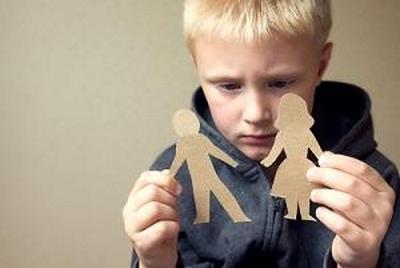Recent Blog Posts
What Issues Must Be Addressed in an Illinois Parenting Plan?
 When parents get divorced and wish to share custody of their child in Illinois, they are expected by the court to create a parenting plan. This plan outlines how parental responsibilities will be shared as well as how decisions about the child’s upbringing will be made after the divorce is finalized. There are certain elements of a parenting plan that are required under Illinois laws, but many experts suggest including other aspects of childrearing in the plan as well.
When parents get divorced and wish to share custody of their child in Illinois, they are expected by the court to create a parenting plan. This plan outlines how parental responsibilities will be shared as well as how decisions about the child’s upbringing will be made after the divorce is finalized. There are certain elements of a parenting plan that are required under Illinois laws, but many experts suggest including other aspects of childrearing in the plan as well.
If you are considering a divorce, it is a good idea to learn about what you must include in a parenting plan. A qualified family law attorney can help you make your parenting plan the foundation of a healthy co-parenting relationship.
Requirements for Illinois Parenting Plan
At a minimum, a parenting plan in Illinois must include:
- A designation of the parent who will have the majority of parenting time (custodial parent);
Understanding the Basics of Annulment in Illinois
 The concept of having a marriage annulled is one that is shrouded in confusion. Many people do not understand when annulment is a possible, or they assume that anyone can have their marriage annulled. In Illinois, an annulment is called a “Declaration of Invalidity of Marriage.” There are strict rules which dictate when a person can get their marriage invalidated, and only a small percentage of individuals qualify for annulment. Read on to learn about the annulment laws in Illinois as well as what to do if you need to end your marriage.
The concept of having a marriage annulled is one that is shrouded in confusion. Many people do not understand when annulment is a possible, or they assume that anyone can have their marriage annulled. In Illinois, an annulment is called a “Declaration of Invalidity of Marriage.” There are strict rules which dictate when a person can get their marriage invalidated, and only a small percentage of individuals qualify for annulment. Read on to learn about the annulment laws in Illinois as well as what to do if you need to end your marriage.
The Difference Between Annulment and Divorce
When a person gets a divorce, their marriage is ended. However, annulment does not end a marriage, it actually nullifies the marriage entirely. A couple who has had their marriage annulled makes it so that it is if the marriage never happened at all. In the eyes of the law, an annulled marriage never took place.
How Long Will My Divorce Take?
 Making the decision to get divorced is never easy and the process of ending a marriage can be painful and tedious. Understandably, many spouses want their divorce to be over as soon as possible. If you have decided to end your marriage in Illinois, you may be wondering, “How long will it take for my divorce to be finalized?” The answer will depend on a wide variety of factors including the married couple’s life circumstances, wealth, and ability to cooperate during the divorce process.
Making the decision to get divorced is never easy and the process of ending a marriage can be painful and tedious. Understandably, many spouses want their divorce to be over as soon as possible. If you have decided to end your marriage in Illinois, you may be wondering, “How long will it take for my divorce to be finalized?” The answer will depend on a wide variety of factors including the married couple’s life circumstances, wealth, and ability to cooperate during the divorce process.
Complex Assets and High Net-Worth Will Complicate Property Division
Illinois divides marital property according to equitable division laws. Instead of property being split exactly evenly with each spouse receiving 50 percent of the marital estate, property is divided according to what is fair or equitable. The more property and debt a couple has accumulated during marriage, the more work it will take to divide this property and debt during divorce. The amount of time it will take for property division decisions to be finalized will largely depend on how well the couple cooperates, the value of their assets, and the type of property owned. Complex assets like retirement plans, pensions, and stock options can be harder to valuate and divide than other assets. If the couple has other complex investments such as a family business, the divorce process will likely take longer than average.
Three Tips for Helping Children Deal with Divorce
 The decision to end your marriage is never an easy one, but perhaps no other group has as difficult of a decision to make as parents. Many parents try everything they can to stay together, but ultimately decide that they simply cannot make their marriage work. If you are a parent who has decided to divorce, you probably spend a lot of time worrying about how the divorce will affect your children. While it is likely that the transition will be challenging for the whole family, children are fully capable of living a happy, healthy life with divorced parents. Read on to learn the top three tips experts say will help your children cope with your divorce.
The decision to end your marriage is never an easy one, but perhaps no other group has as difficult of a decision to make as parents. Many parents try everything they can to stay together, but ultimately decide that they simply cannot make their marriage work. If you are a parent who has decided to divorce, you probably spend a lot of time worrying about how the divorce will affect your children. While it is likely that the transition will be challenging for the whole family, children are fully capable of living a happy, healthy life with divorced parents. Read on to learn the top three tips experts say will help your children cope with your divorce.
Tip #1: Do Not Fight in Front of the Kids
The number one thing that mental health and child development experts say not to do during divorce is to fight with your spouse in front of the children. Because children naturally have a self-centered view of the world around them, they often think that parental arguments are somehow their fault. It is best to keep adult conversations away from the children whenever possible. If you need to have a heated discussion with your spouse, try to find a place which is out of kids’ earshot to do so.
FAQs Regarding the Guardian ad Litem
 When parents get divorced or unmarried parents have a child together, there are often disagreements regarding issues of child custody and visitation. In Illinois, child custody is called the “allocation of parental responsibilities” and visitation is called “parenting time.” If you and your former spouse or partner have disputes about parenting time or parental responsibilities, you may require court intervention to help solve these problems. Illinois family court judges sometimes appoint a specially-trained attorney to help when parents have disputes regarding children. Typically, the attorney serves in one of three roles: child representative, attorney for the child, or guardian ad litem. Read on to learn more about the most common of these specially-trained attorneys, a guardian ad litem.
When parents get divorced or unmarried parents have a child together, there are often disagreements regarding issues of child custody and visitation. In Illinois, child custody is called the “allocation of parental responsibilities” and visitation is called “parenting time.” If you and your former spouse or partner have disputes about parenting time or parental responsibilities, you may require court intervention to help solve these problems. Illinois family court judges sometimes appoint a specially-trained attorney to help when parents have disputes regarding children. Typically, the attorney serves in one of three roles: child representative, attorney for the child, or guardian ad litem. Read on to learn more about the most common of these specially-trained attorneys, a guardian ad litem.
What Is the Purpose of a Guardian ad Litem?
Courts generally appoint a guardian ad litem (GAL) to represent the interests of a child, infant, unborn child, or other person who cannot advocate for themselves. The job of a GAL in a child custody case is to protect the legal rights of the child or children involved in the dispute. He or she will investigate the lives of each parent and anyone else relevant to the case. This may include interviewing parents and other parties, as well as visiting the child’s home and school and reviewing relevant documents. The GAL will then use this information to make a recommendation to the court about what he or she thinks is the best course of action moving forward.
Collecting Child Support from a Parent Who Is Incarcerated
 If your child’s other parent has been convicted of a crime and is in jail or prison, you may have dozens of concerns, including worries regarding child support. When an individual is incarcerated, their financial obligations are usually still considered valid. This includes child support payments. Read on to learn about how incarceration can affect child support payments as well as what to do if you are not receiving court-ordered child support.
If your child’s other parent has been convicted of a crime and is in jail or prison, you may have dozens of concerns, including worries regarding child support. When an individual is incarcerated, their financial obligations are usually still considered valid. This includes child support payments. Read on to learn about how incarceration can affect child support payments as well as what to do if you are not receiving court-ordered child support.
Parents in Jail Are Still Responsible for Child Support
When a judge orders a parent to pay their child’s other parent child support, that requirement is generally intended to last until the child is an adult. A child’s financial needs do not stop just because a parent is incarcerated. If your child’s other parent in in jail, he or she is still responsible for his or her court-ordered child support payments. However, the parent may be able to petition the court for a temporary modification of their child support obligation.
Special Considerations for Divorce After a Long Marriage
 Former NBC news anchor Matt Lauer’s wife of 20 years has formally filed for divorce. The couple is seeking an uncontested divorce, but many factors will likely complicate and possibly draw out the split. Lauer is estimated to have made over $100 million during his tenure at NBC, and the couple has invested much of this money into extravagant real estate purchases. Not only is the couple quite wealthy, but they have also been married for two decades and have three children together.
Former NBC news anchor Matt Lauer’s wife of 20 years has formally filed for divorce. The couple is seeking an uncontested divorce, but many factors will likely complicate and possibly draw out the split. Lauer is estimated to have made over $100 million during his tenure at NBC, and the couple has invested much of this money into extravagant real estate purchases. Not only is the couple quite wealthy, but they have also been married for two decades and have three children together.
Couples who divorce after a long marriage often experience a much different dissolution process than couples who have had short marriages. If you are considering ending your long-term marriage, there are several considerations you should keep in mind.
You or Your Spouse May Be Eligible for Spousal Support
Spousal support, also referred to as spousal maintenance or alimony, is not awarded in every divorce case. Illinois family courts consider many factors when determining whether or not spousal support is appropriate. These factors include but are not limited to:
Sharing Custody of Children After Your Divorce
 If you are a parent who is considering ending your marriage, you probably have many concerns related to your children. You may worry about how you children will take the news of the divorce or how you and your spouse will share custody of the children after the split. If you and your soon-to-be-ex spouse plan to have joint custody of your children, you will need to learn how to share parental responsibilities in a way that prioritizes your children’s best interests. It can take hard work and humility, but the good news is that effective co-parenting after divorce is possible.
If you are a parent who is considering ending your marriage, you probably have many concerns related to your children. You may worry about how you children will take the news of the divorce or how you and your spouse will share custody of the children after the split. If you and your soon-to-be-ex spouse plan to have joint custody of your children, you will need to learn how to share parental responsibilities in a way that prioritizes your children’s best interests. It can take hard work and humility, but the good news is that effective co-parenting after divorce is possible.
There Is Not Just One “Right” Way to Co-Parent
Just as every marriage is unique, every divorce is unique. Sometimes, a married couple breaks up and there are almost no feelings of bitterness or hostility between the former spouses. Other times, a divorce is wrought with conflict and spite. The way you co-parent will largely be determined by the relationship you have with your children’s other parent. If you and the other parent are able to easily communicate about child-related plans and concerns, you may be able to have a more casual co-parenting arrangement. However, if you and your children’s other parent struggle with productive communication, you may want to make firm parenting plans and decisions in advance.
Alternatives to Litigation in Your Illinois Divorce
 Just as every marriage is unique, every divorce is unique as well. There is no perfect way to end a marriage and spouses should choose the divorce options and resources which fit their particular needs. Some couples are able to get a divorce without any help resolving divorce issues such as disagreements regarding property division, child custody, or other concerns. However, many couples need help in order to come to an agreement about these issues. In situations such as these, divorcing individuals in Illinois may benefit from alternative dispute resolution in the form of mediation and collaborative law.
Just as every marriage is unique, every divorce is unique as well. There is no perfect way to end a marriage and spouses should choose the divorce options and resources which fit their particular needs. Some couples are able to get a divorce without any help resolving divorce issues such as disagreements regarding property division, child custody, or other concerns. However, many couples need help in order to come to an agreement about these issues. In situations such as these, divorcing individuals in Illinois may benefit from alternative dispute resolution in the form of mediation and collaborative law.
Mediation Can Help Couples Communicate About Divorce Issues
Understandably, it can be very difficult for divorcing spouses to come to a resolution regarding divorce issues. They may have feelings of resentment, anger, or blame toward each other which make it hard to discuss issues without the discussion collapsing into arguments. During the mediation process, divorcing spouses work with a qualified mediator who acts as a neutral third party to facilitate productive conversations.
Illinois Lawmakers Propose Law to Help Residents Getting Divorced Change Their Names
 Many women, and some men, change their last name to their new spouse’s last name when they get married. This is a meaningful tradition for many. Unfortunately, it is currently much easier for people to change their name when they get married than when they get divorced. An archaic rule in Illinois law makes the current process for changing your last name much more difficult than it needs to be. Illinois Senator Cristina Castro hopes to change this.
Many women, and some men, change their last name to their new spouse’s last name when they get married. This is a meaningful tradition for many. Unfortunately, it is currently much easier for people to change their name when they get married than when they get divorced. An archaic rule in Illinois law makes the current process for changing your last name much more difficult than it needs to be. Illinois Senator Cristina Castro hopes to change this.
Current Law Regarding Name Changes
For many people, changing your last name to that of your spouse is an important part of getting married. Currently, the process for a name change in Illinois is much easier if you have a marriage certificate. However, the process for changing your name after divorce is much more involved. In Illinois, there is currently a requirement that anyone seeking a name change to must publish a notice of that change in a newspaper. However, this requirement is lifted for individuals who can show a court-issued marriage certificate. While this works well for those getting married, what about people getting divorced?











 630-352-2240
630-352-2240



